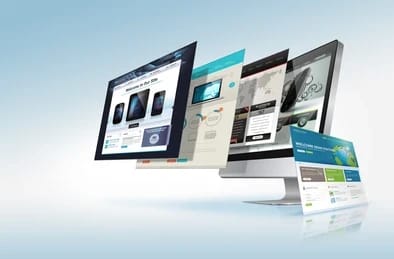Table of Contents
There are several types of website design to choose from, each with its own unique characteristics and best suited for different types of websites. Before creating a website consult with the best web design services to know which design is suitable for your business. Here, some of the most popular types of website design include:
Static Website Design
A static website is one where the content is fixed and does not change unless manually updated by a web developer. These types of websites are best suited for small businesses or personal websites that do not require frequent updates or dynamic functionality. Static websites are easy to create and maintain and are typically less expensive than dynamic websites. They are also less vulnerable to hacking and other security issues.
Dynamic Website Design
A dynamic website is one where the content is generated in real-time based on user interactions or other variables. These types of websites are best suited for e-commerce sites, social media platforms, and other websites that require frequent updates. Dynamic websites use databases and server-side scripting languages such as PHP, Python, and Ruby to generate content on the fly. They offer greater flexibility and functionality than static websites, but they are also more complex to create and maintain. If you have an e-commerce site to create a website for your business, then our web design services are there to help you!
Responsive Website Design
A responsive website is designed to adapt to the device and screen size it is being viewed on. This ensures that the website looks and functions correctly across different devices, such as desktop computers, tablets, and smartphones. Responsive design uses a combination of flexible grids, images, and CSS media queries to create a layout that automatically adjusts to the size of the user’s screen. This allows for optimal viewing on any device, making it a popular choice for businesses and organizations that want to reach a broad audience.
Single Page Application (SPA)
A single-page application is a web application or website that interacts with the user by dynamically rewriting the current web page with new data from the web server, instead of loading entire new pages from a server. It is a popular choice for web apps like social media platforms, email clients, and other applications that require real-time updates and fast performance.
Parallax Website Design
A parallax website is a website that uses the parallax scrolling effect, where background images move slower than foreground images, creating a 3D illusion. Parallax scrolling can add depth and interest to a website, making it more engaging for users. It is commonly used in portfolios, photography, and creative websites.
Minimalistic Website Design
A minimalistic website uses a minimal amount of design elements to create a simple, clean and uncluttered look. This type of design is all about simplicity, functionality, and focusing on the content. Minimalistic design is often used by businesses and organizations that want to convey a sense of professionalism and credibility.
E-commerce website design
An e-commerce website design is a specific type of website design that is optimized for online stores and businesses that sell products or services online.
Some of the key features of e-commerce website design include:
- Product Catalog: E-commerce websites typically have a product catalog that displays all of the products or services that are available for purchase. The catalog should be easy to navigate and search and should include high-quality images and detailed product descriptions.
- Shopping Cart: E-commerce websites need to have a functional shopping cart system that allows customers to add items to their cart, view the contents of their cart, and proceed to checkout.
- Payment Gateway: E-commerce websites need to have a secure payment gateway integrated to process the payments made by customers. The gateway should support multiple payment options, such as credit cards, PayPal, and other popular payment methods.
- Order Management: E-commerce websites need to have an order management system that allows customers to view the status of their orders, track their shipments, and receive updates on the status of their orders.
- Customer Account: E-commerce websites often include a customer account system that allows customers to create an account, view their order history, and save their shipping and billing information for faster checkout.
- Mobile Optimization: With the increasing use of mobile devices for online shopping, e-commerce websites need to be optimized for mobile devices. This includes using responsive design techniques to ensure that the website looks and functions correctly on smaller screens.
Conclusion
Each type of website design has its advantages and disadvantages, and the type you choose will depend on your specific needs and goals. It’s important to carefully consider the purpose of your website and the audience you want to reach before deciding on the type of design that’s right for you. Hiring a professional web design service in Chennai can be of help here.









